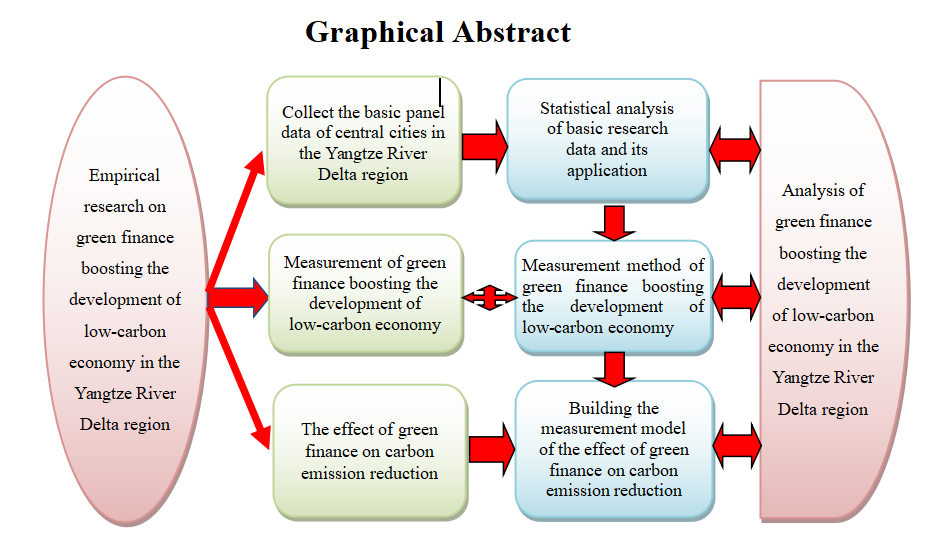- Cite article
- Download PDF
- Share article
- 34 Downloads
In order to address the increasingly prominent issues of sustainable development in resources, environment, and ecology, the support of green finance and the transformation of a low-carbon economy are two complementary and pivotal strategies and paths on the journey towards achieving the grand goal of "carbon neutrality". To facilitate the smooth implementation of China's carbon emission reduction efforts, a thorough analysis of the coordinated development between green finance and the low-carbon economy is crucial. This paper utilizes panel data from central cities in the Yangtze River Delta region to conduct an analysis, exploring the impact of green finance levels on carbon emissions through the application of bidirectional fixed-effects and mediation effect models.The research results indicate that the level of green finance can suppress carbon emissions to a certain extent and promote low-carbon development in the region. These findings are confirmed through robustness tests. In analyzing the mediation mechanism, it is discovered that government investment in environmental protection plays a mediating role in the process of green finance influencing carbon emissions. Additionally, a regional heterogeneity analysis reveals that regions with higher levels of green finance development exert a more significant impact on carbon emissions.
